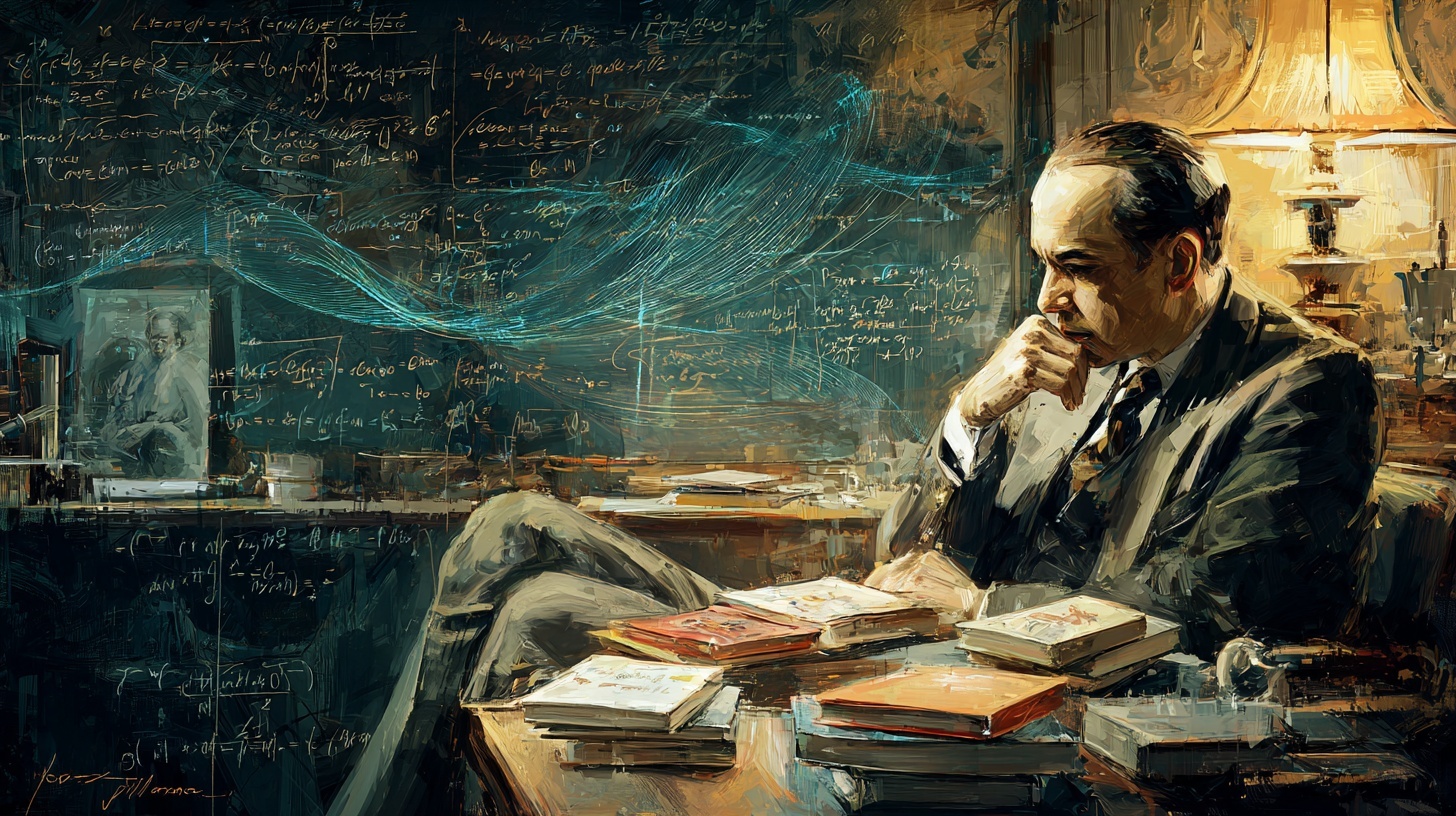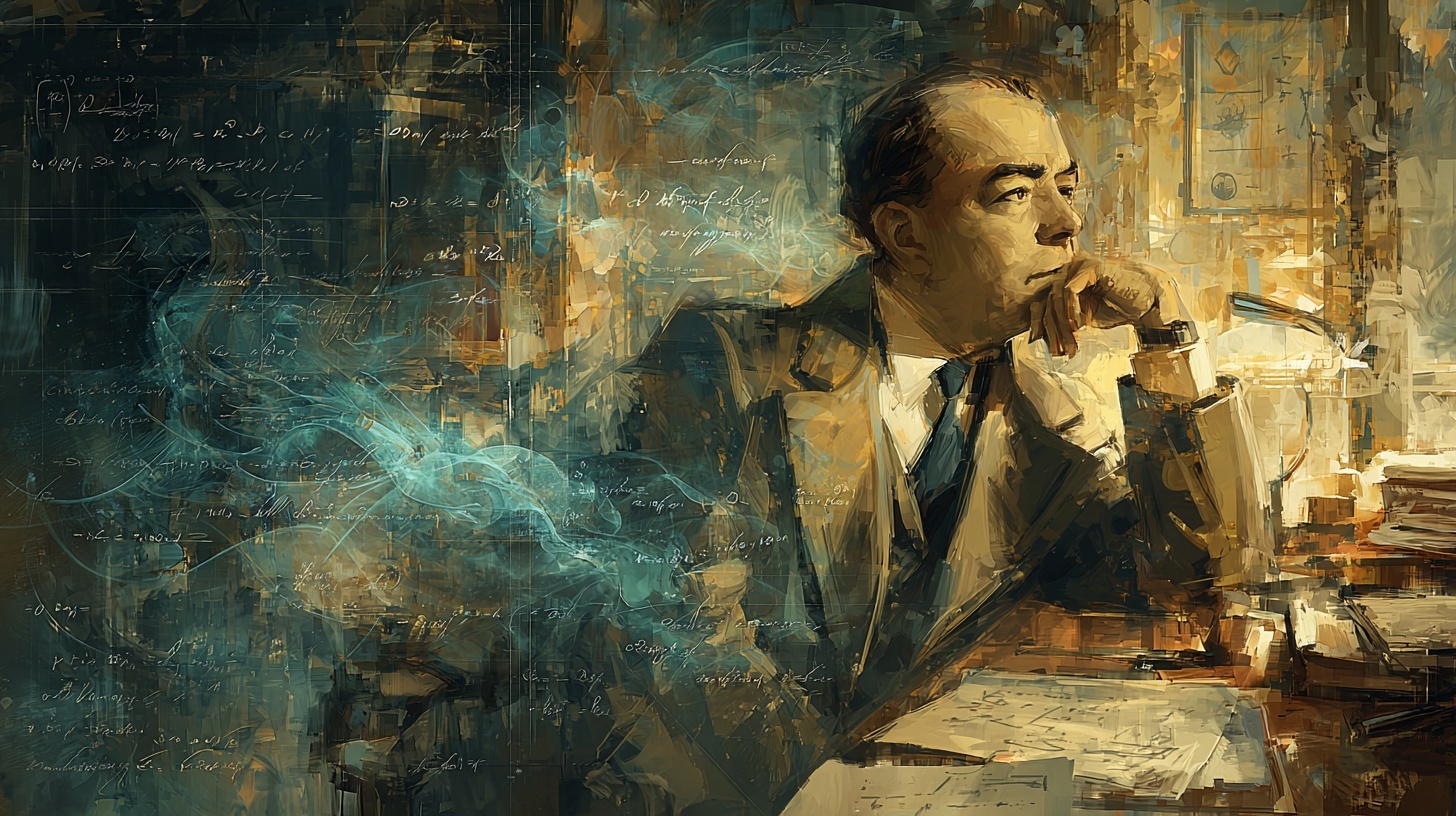Introduction
In contemporary society, no scientific theory has been as misunderstood and misappropriated as quantum mechanics. From politicians to entertainers, prominent figures across various fields propagate claims that "quantum mechanics makes wishes come true" or "consciousness creates reality," ideas that have gained widespread acceptance through books and seminars. However, witnessing this phenomenon, we cannot help but think of one mathematical genius's profound disappointment.
John von Neumann (1903-1957)—one of the greatest mathematical minds of the 20th century and a founding father of the mathematical foundations of quantum mechanics. He once clearly stated: "The assumption that mental phenomena cannot directly influence physical phenomena is a fundamental postulate of the scientific worldview."
This essay attempts to examine the chasm between von Neumann's authentic thought and contemporary misunderstandings, while questioning what constitutes genuine scientific integrity.
Von Neumann: The Genius
Extraordinary Intellectual Capacity
Von Neumann's intellectual abilities were legendary. At age six, he could perform eight-digit arithmetic mentally; by eight, he had mastered calculus; and by his teens, he was working at university-level mathematics. His colleagues at Princeton University called him "the Martian."
Contributions to Quantum Mechanics
In 1932, von Neumann published "Mathematical Foundations of Quantum Mechanics," establishing quantum mechanics on a rigorous mathematical foundation. This achievement made him one of the fathers of quantum mechanics. However, this very accomplishment would later become the breeding ground for widespread misunderstanding.
Other Great Achievements
- Founding Game Theory: Revolutionized economics
- Computer Theory: Laid the theoretical foundation for modern computers
- Nuclear Weapons Development: Participated in the Manhattan Project
- Cellular Automata: Pioneered complex systems theory
The True Meaning of the Observation Problem
What is the von Neumann-Wigner Interpretation?
In quantum mechanics, the "observation problem" is a fundamental philosophical challenge. Quantum systems exist in superposition states until observed, but "collapse" into a single state the moment they are measured. When and how does this collapse occur?
What von Neumann and Eugene Wigner proposed was considering "consciousness" as part of the quantum process to avoid the infinite regress of measuring devices—this was a mathematical convenience for theoretical discussion.
The Beginning of Misunderstanding
Crucially, this was an epistemological inquiry, not a wish-fulfillment theory. Von Neumann never believed that consciousness could manipulate physical phenomena. Rather, it was a pursuit of scientific integrity—seeking how to ensure the objectivity of observation.
The Structure of Modern Misunderstanding
The Genealogy of Misinterpretation
The misuse of quantum mechanics spread through the following stages:
Stage One: Academic Discourse
- Philosophical consideration of the observation problem
- Questions about the relationship between consciousness and physical phenomena
Stage Two: Popular Science Explanation
- Simplification of technical terms
- Metaphorical explanation of complex concepts
Stage Three: Self-Help Book Application
- Expanded interpretation of the "observer effect"
- Transformation into "consciousness influences reality"
Stage Four: Spiritual Theorization
- "Quantum mechanics makes wishes come true"
- "Thoughts create reality"
Transformation at Each Stage
Throughout this process, von Neumann's true intention was gradually distorted. The most problematic aspect was the complete reversal from humble inquiry into the limits of knowledge to arrogant claims of reality manipulation through cognition.
Problems Caused by Misunderstanding
Degradation of Scientific Thinking
The misconception that "quantum mechanics makes wishes come true" leads to intellectual decay:
- Disregard for Falsifiability: Prioritizing subjective experience over empirical data
- Confusion of Causation: Abandoning the distinction between correlation and causation
- Disregard for Logical Consistency: Tolerating contradictory claims
- Blind Submission to Authority: Uncritical acceptance of scientifically-dressed assertions
Societal Impact
This misunderstanding creates problems beyond the individual level:
- Proliferation of Pseudoscientific Commerce: Misuse as theoretical basis for expensive seminars and products
- Influence on Policy Decisions: Important decisions made with unscientific thinking
- Confusion in Educational Settings: Blurring boundaries between science education and pseudoscience
What True Scientific Integrity Means
Von Neumann's Scientific Attitude
Von Neumann's true greatness lay in his intellectual honesty. He never escaped into easy answers but confronted the difficulty of knowing head-on. His approach to the observation problem was not about conveniently interpreting reality, but pursuing rigorous approximation of truth.
Facing Uncertainty
What quantum mechanics teaches us is the complexity and uncertainty of reality. Interpreting this as "possibilities for wish fulfillment" is nothing more than distorting scientific discoveries for self-serving purposes.
True scientific attitude involves:
- Accepting reality including inconvenient facts
- Strict distinction between subjective desires and objective facts
- Humble recognition of knowledge limitations
- Consistent demand for falsifiability
Proposal for Quantum Spirituality
The Theory of Possibility Manifestation
I propose a new perspective for applying quantum mechanical thinking to spirituality: the "Theory of Possibility Manifestation." This views reality as "the manifestation of possibilities through observation."
Importantly, this is not selective observation through desire but open recognition of all possibilities. Love and hatred, success and failure—accepting all possibilities equally—this is true quantum thinking.
Shinsha (Spiritual Discerner) Quantum Mechanics
What we should aim for is integrating quantum mechanics' true lesson—respect for reality's complexity—into spirituality. This involves:
- Holistic recognition including not just convenient realities but also injustice and tragedy
- Compassionate perspective toward entire systems beyond personal desires
- Attitude of accepting uncertainty not as a threat but as a source of creativity
Conclusion: Carrying Forward Von Neumann's Legacy
The greatest lesson von Neumann left us is the preciousness of intellectual honesty. He never distorted theories to suit his convenience but pursued rigorous approximation of truth throughout his life.
What is required of us today is applying this attitude to the field of spirituality. This means facing reality's complexity and uncertainty honestly, without escaping into easy answers or convenient interpretations.
"Mental phenomena cannot directly influence physical phenomena"—von Neumann's words are both a physical fact and an important guideline for spiritual maturity. True spirituality is not about manipulating reality to fit our desires, but about accepting reality as it is and continuing to make the best choices within that reality.
To those who have turned quantum mechanics into love theory—let us understand von Neumann's true intention and strive for genuine intellectual progress that integrates scientific integrity with spiritual depth.
References
- Von Neumann, J. "Mathematical Foundations of Quantum Mechanics" (1932)
- Born, M. "Probabilistic Interpretation of Quantum Mechanics"
- Bohm, D. "Quantum Theory"
- Tomonaga, S. "Quantum Mechanics"

